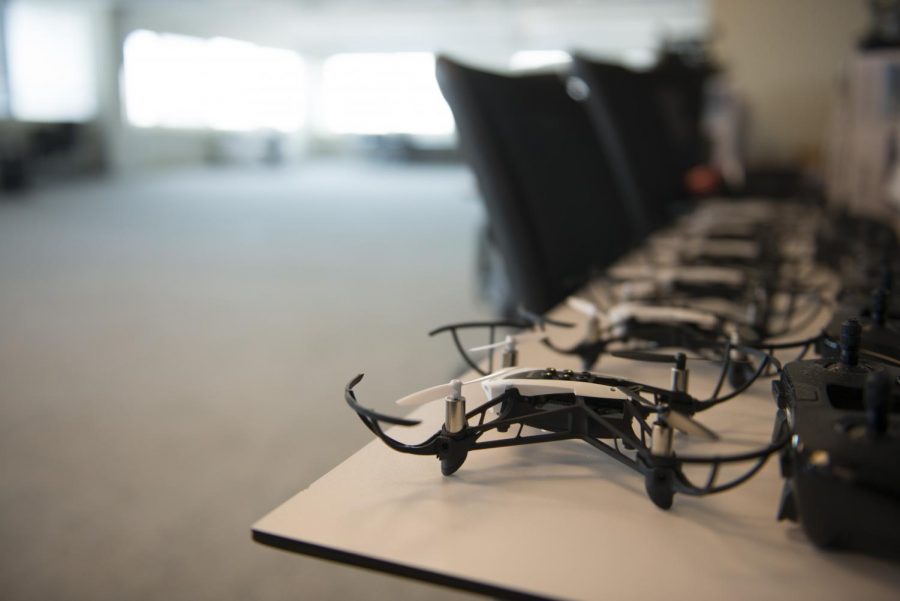AACC offers noncredit classes about drones
Photo courtesy of Paul Harland-White
This May, AACC will offer a noncredit drone course for students who want to be certified to pilot them.
May 1, 2018
AACC will offer a new noncredit course this May for students interested in becoming certified drone pilots.
The new course, FAA Part 107 Remote Pilot Exam Preparation, is one of 13 noncredit courses at AACC related to using drones in various commercial and emergency responder jobs. For example, students can also take Introduction to Unmanned Aerial Systems, UAS Precision Agriculture and UAS First Responder Leadership.
The new course is a three-day class that teaches students how to operate drones safely in commercial environments, how to maintain them and how to comply with regulations.
The course will also prepare students to earn a small drone piloting license from the Federal Aviation Administration.
“This is the beginning of the program, and we hope to build it further,” said Judith Wilson, the program developer for cyber and technology training. “Right now I think you’d see more interest from the hobbyists, and not necessarily people who are seeking it for use in a business. [Professionals are] the group we are trying to get ahold of.”
AACC partnered with Sinclair Community College in Ohio and Consortiq, a drone consulting company, to get the program started.
“It sounds very interesting,” Helena Bryant-Holland, a third-year human services student, said. “I think it’s important to be able to take a test … so they can have the tools and experience beforehand.”
The Association for Unmanned Vehicle Systems International estimated unmanned aircraft would create more than 100,000 new jobs by 2025.
“I’ve heard about the cool things you could do with [drones],” Adam Mason, a third-year liberal arts student, said. “I think that the [jobs] will be paid very highly.”
Photographers, filmmakers, law enforcement and various other industries already use drones.
First responders are using drones during active shooter and search-and-rescue operations, Wilson explained.
Paul Harland-White, a program assistant for cyber and technology training and a transfer studies student, said photographers can use drones to create full virtual models of houses.
Interested students can find all drone classes, including the new course—listed as CTU 349—in AACC’s spring 2018 course catalog under Unmanned Aerial Systems.












